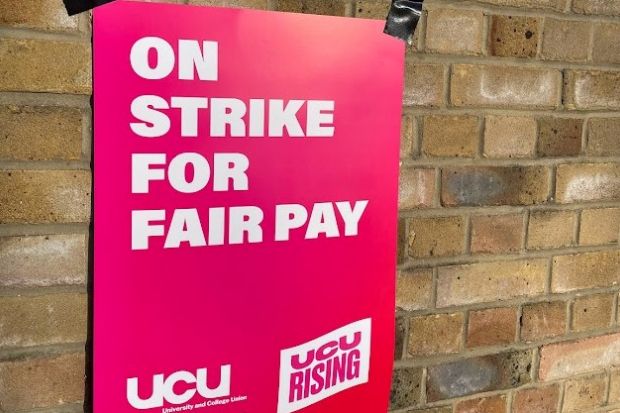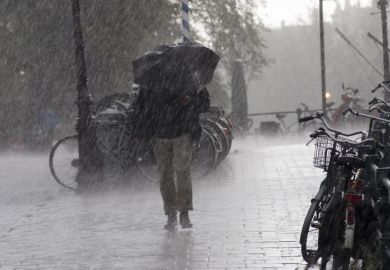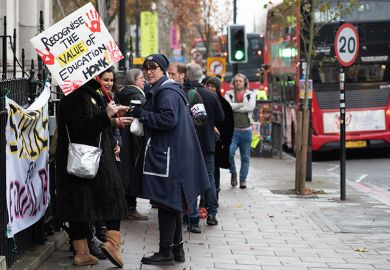Staff at Goldsmiths, University of London are to begin a marking boycott while union branches at Sheffield Hallam University and the University of Kent could also hold strikes as a wave of cost-cutting by universities is met with a renewed bout of industrial action.
In a potential repeat of disruption that grabbed headlines last year, University and College Union (UCU) members at Goldsmiths will, from 19 April, decline to take part in any marking and assessment work including exam invigilation and the processing of marks.
While the institution does not hold its main exam season until May, the action could disrupt coursework and a prolonged boycott could delay graduations, affecting the future life choices of students involved.
The south-east London institution that specialises in arts and humanities subjects has announced plans to cut 130 jobs as it seeks to deal with the funding crisis in higher education, caused by the tuition fee freeze, recruitment problems and rising costs.
UCU said this amounts to one in six academic staff with 11 affected departments losing at least a third of their staff.
“We warned Goldsmiths that we will not allow it to bulldoze brutal cuts of this scale through, but despite our overwhelming vote for industrial action, management has refused to listen. It now has two weeks to change course and avoid a marking boycott,” said general secretary Jo Grady.
A Goldsmiths spokesperson said that universities across the country “are facing difficult challenges borne of a funding system that is widely acknowledged to be no longer fit for purpose” and its plans would help the institution overcome the issues.
“It’s regrettable that our students are facing renewed industrial action and we will ensure that their learning is supported. We will continue to work hard to ensure that job losses are kept to a minimum and also to protect arts and humanities subjects in the best way we can,” the spokesperson added.
At Kent, a ballot of union members backed strike action by a majority of 85 per cent on a turnout of 57 per cent the day after the current vice-chancellor Karen Cox announced that she will be stepping down from the post in May.
The university has placed 58 staff at risk of redundancy and plans to close six courses as well as reduce the amount of time staff have allocated to research from 40 per cent to 20 per cent.
Dr Grady said the cuts “amount to a bonfire of undergraduate courses” and “they will have devastating consequences on the university and its local community and must now be halted immediately”.
“Staff and students urgently need a new senior leadership team that will work with us to build a sustainable future for the university,” she added.
A Kent spokesman said the institution was working with affected staff to talk through their options as a result of the decisions made on course changes and it was “doing all we can” to avoid compulsory redundancies.
“We regret the decision by UCU members to vote for industrial action and remain fully committed to doing all we can in our discussions with them to find a way forward in this dispute. If strike action is confirmed, we have plans in place to ensure that any potential impact on our students is minimised as far as possible. As always, their education and academic progression will remain our priority throughout,” he added.
A strike ballot is to open on 15 April at Sheffield Hallam with UCU accusing the university of planning an “unprecedented cuts programme” and “severely breaching” national agreements by handing line management responsibilities to lecturers and creating a new lower-paid teaching role.
UCU said Sheffield Hallam was axeing 225 jobs, with 140 academics departing last December and 80 now facing compulsory redundancy, although this has been contested by the university.
It said its “change programme” had seen 120 risk of redundancy letters being issued to affected staff but new roles were being created and ringfenced for those at risk and therefore “we are confident that we will be able to keep compulsory redundancies to a minimum”.
Register to continue
Why register?
- Registration is free and only takes a moment
- Once registered, you can read 3 articles a month
- Sign up for our newsletter
Subscribe
Or subscribe for unlimited access to:
- Unlimited access to news, views, insights & reviews
- Digital editions
- Digital access to THE’s university and college rankings analysis
Already registered or a current subscriber? Login







